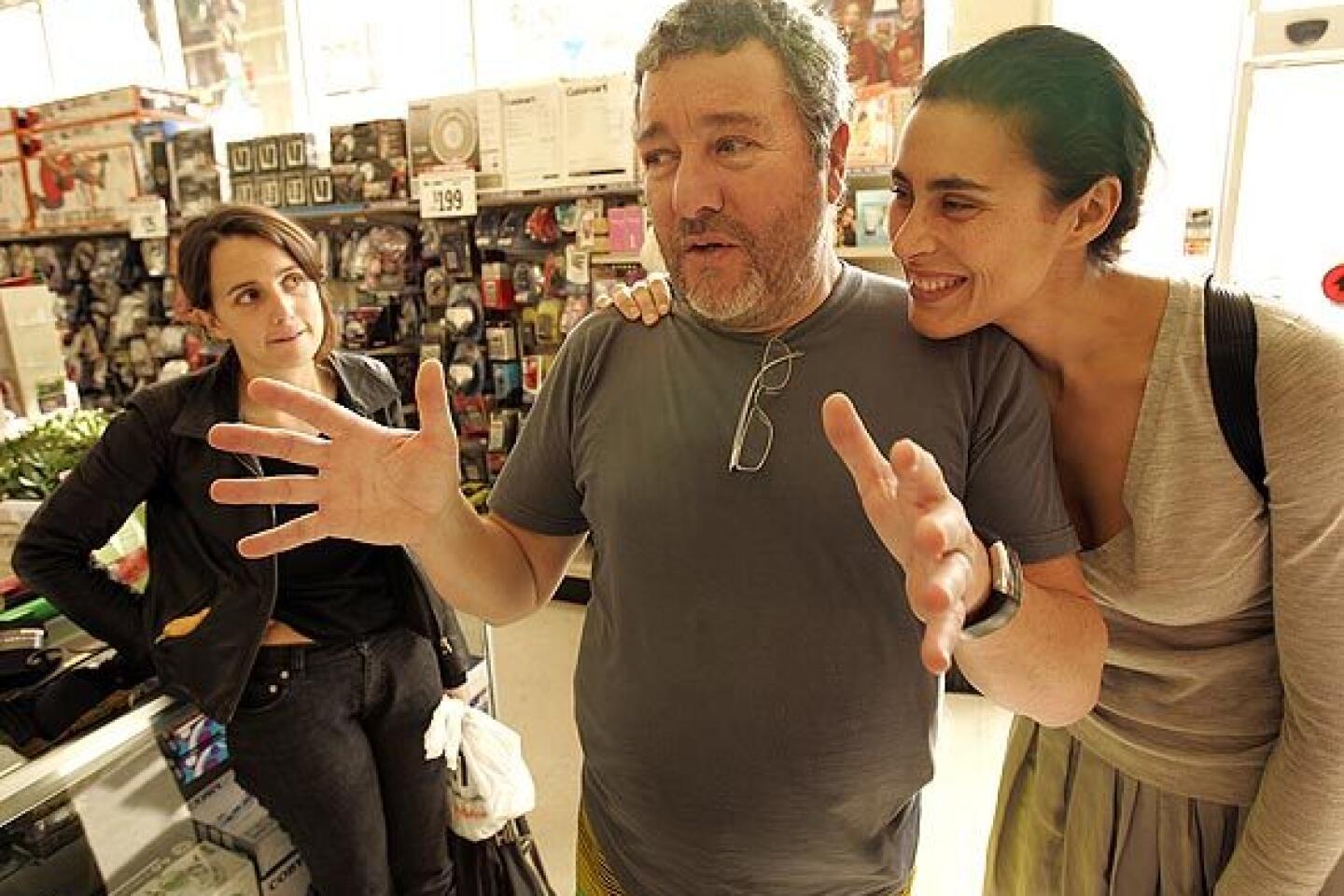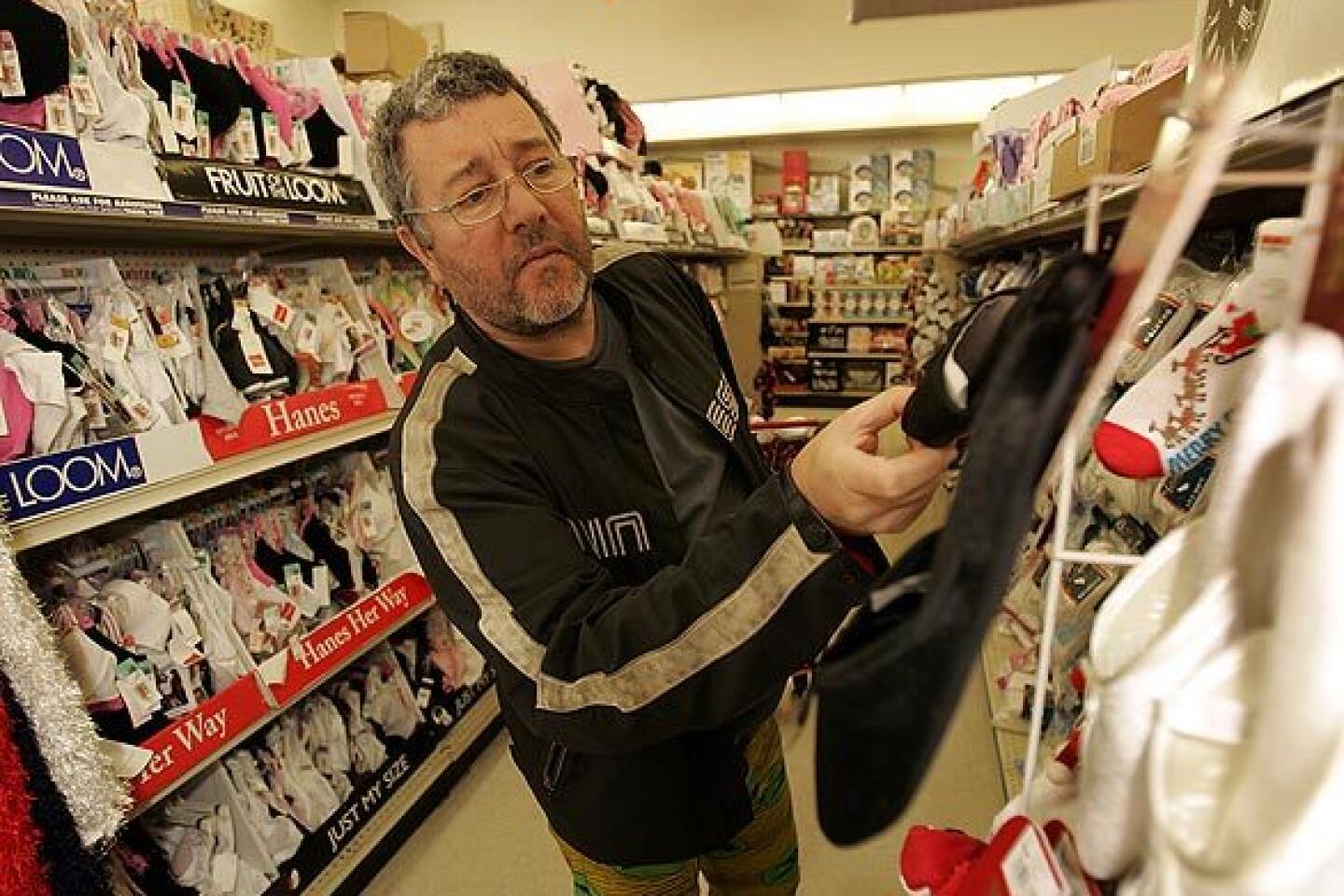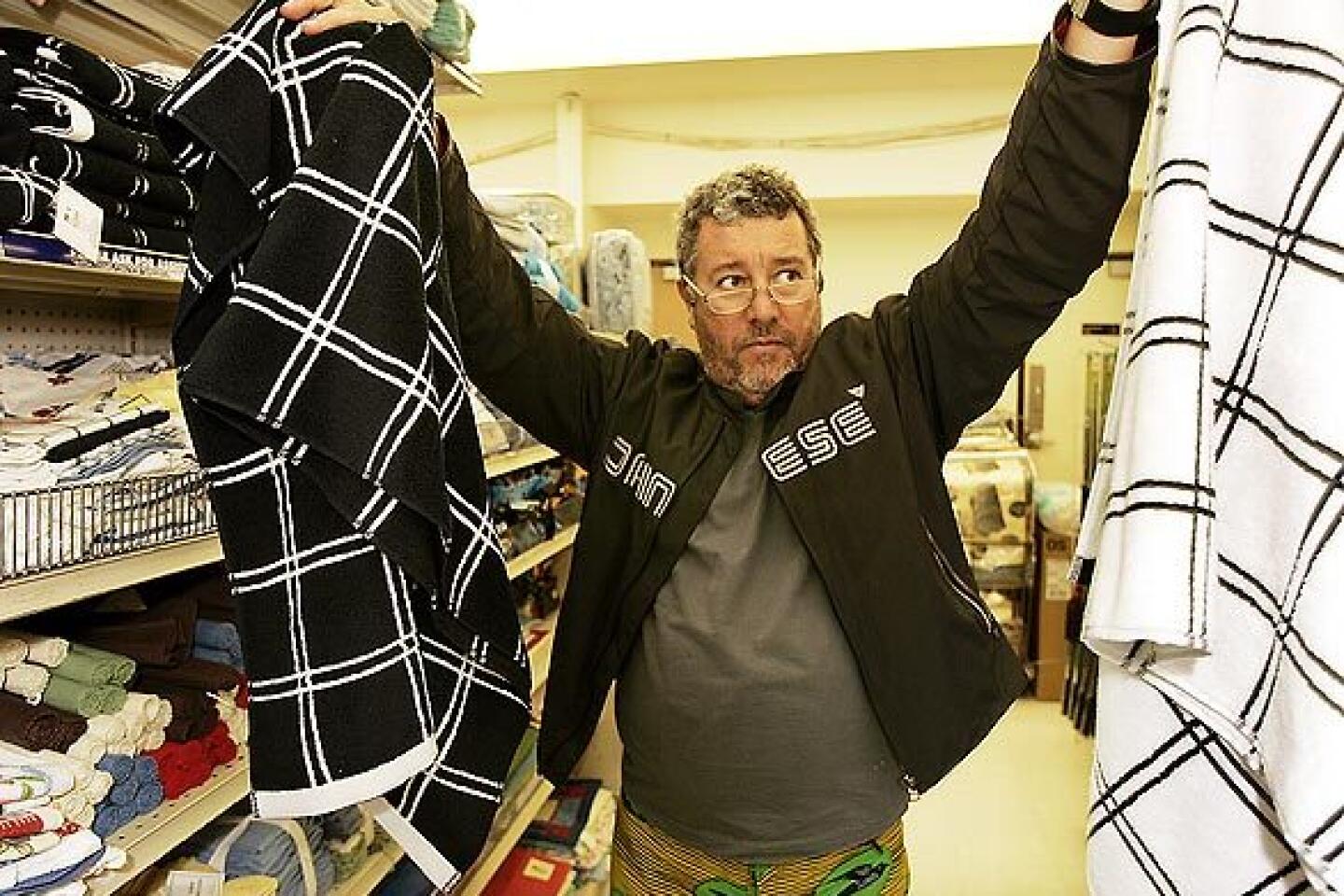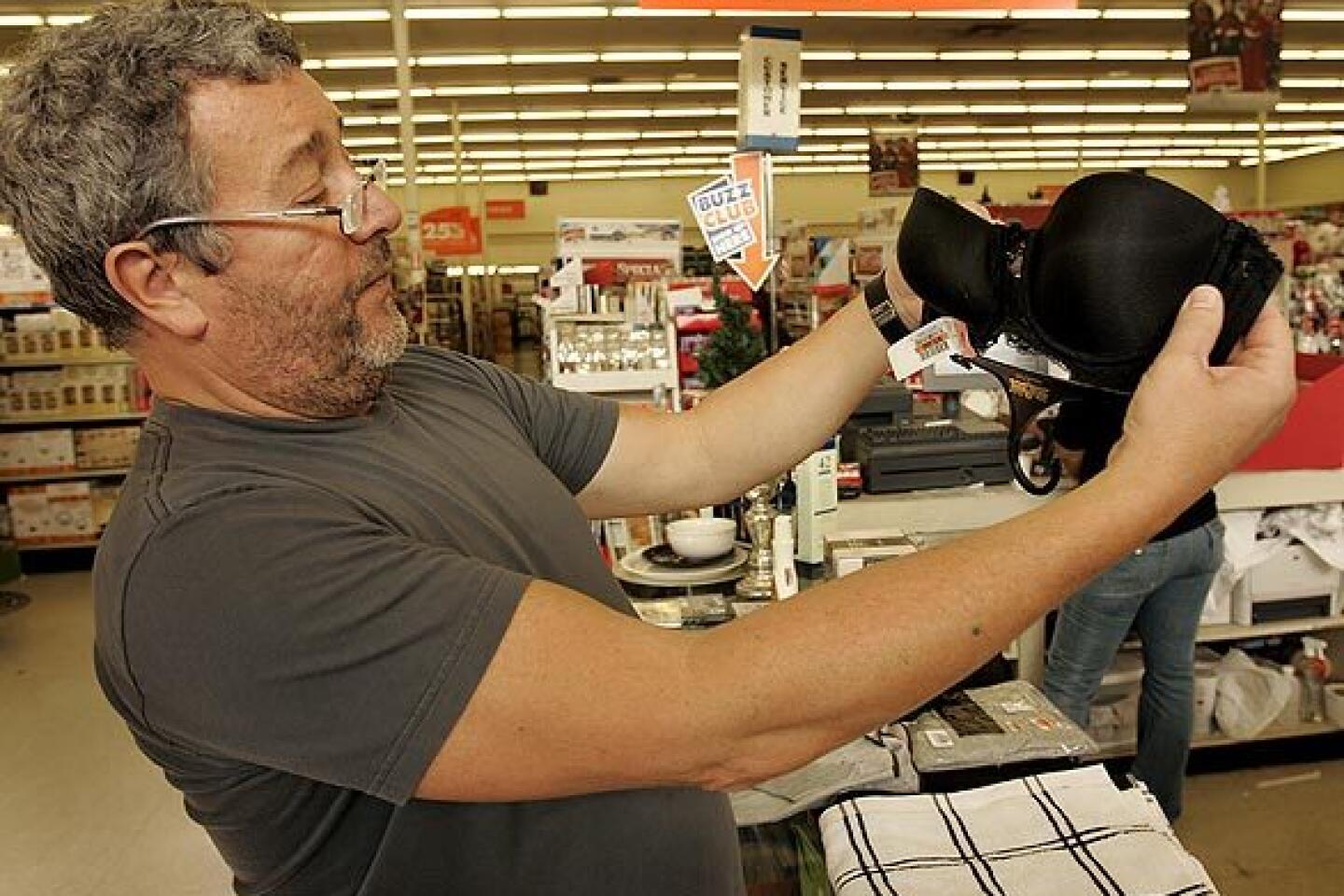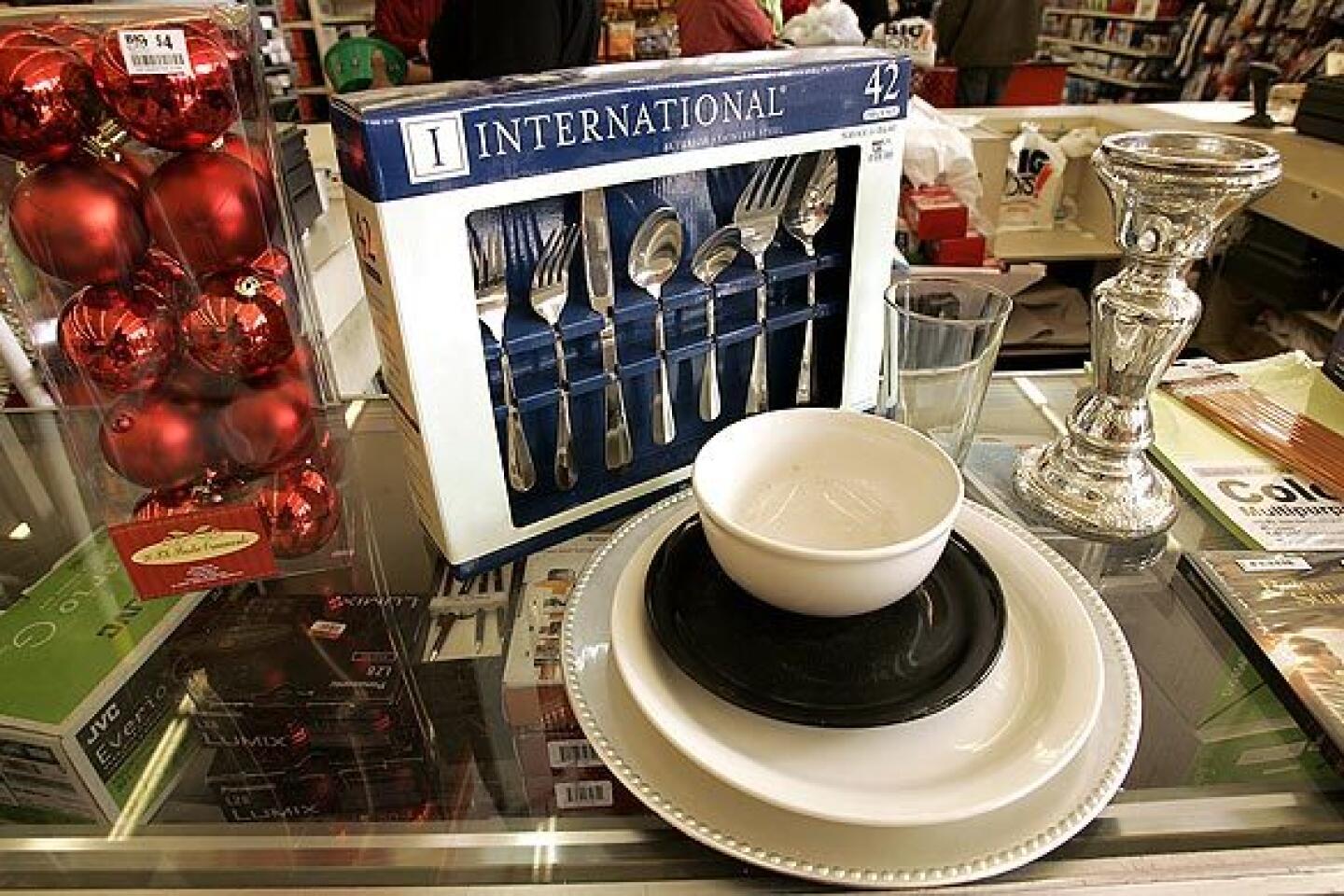Thrifty shopping with Philippe Starck
- Share via
Walking into Big Lots on Vine Street, just blocks from the swank interiors he created for the restaurant Katsuya and the nightclub S Bar, Philippe Starck appears a bit wary.
“Can you live elegantly and economically?” he asks, surveying the store’s vast array of closeout merchandise for the first time. “We shall see. Give me 20 minutes.”
The Hollywood branch of the discount chain is filled with colorful characters, including a silver-haired man in a yachting cap and a diminutive older woman bedecked with Mardi Gras beads, and Starck fits right in. Clad in a leather motorcycle jacket and pants made from a bold African print, he pushes his cart purposefully through the aisles, conversing in French with his entourage -- his wife, Jasmine, and 30-year-old daughter, Ara.
“A children’s folding table with four chairs for $39.99,” he exclaims in a rare burst of English. “Can you imagine?”
Famous for putting a modern spin on 18th century French furniture and for creating exquisite environments using expensive materials and craftsmanship, Starck also embraces sensible consumerism. Buy quality over quantity, he says.
“You must be very rigorous,” he says, sifting through discounted wares in search of the gems. “Try to find the essence, the most iconic or simple representation of a thing. Look for the bowl that looks most like a bowl. That means we must avoid colors and patterns, and everything that can be trendy.”
To illustrate the point, he creates a place setting composed of a silver charger, a white dinner dish, a black salad plate and a white bowl carrying the name Today’s Home, which he pronounces “Scandinavian” in style. He adds a glass tumbler, and the total cost: $5.50.
“If you have guests,” he says, “put this on a white tablecloth and it is irreproachable.”
For utensils, he selects a Hartford 42-piece set, enough for eight people, priced at $25.
“It has the least amount of design,” he says, having compared it to more frilly patterns. As a finishing touch, Starck adds a mercury glass candle pillar with an old-world silhouette and an antique finish. At $12, it is a little expensive, he says, although similar pieces can cost up to twice as much at Target. “But it immediately gives you a deluxe look.”
For the holidays, Starck throws a shot of red into the tabletop mix with a 20-piece set of Christmas balls for $4. The trick is to buy all the same color. It’s not an urgent purchase, he adds, “but even if we are in an economic crisis, we must not be sad.”
A $6 white cotton bath towel with a bold black check is a minimalist exception to Starck’s no-pattern rule. In selecting clothing, he adds a gray T-shirt and work gloves, plus black tights and a bra for the missus and a $4 pack of boxer shorts. He considers the latter a necessity for the good life, “so when a man takes off his clothes, the girl will not laugh.”
Starck is pleased by the store’s furnishings and art supplies for kids. He picks out the aforementioned folding table and chairs, as well as sidewalk chalk, a 240-piece paint and marker set, a packet of paper in a color he dubs “Prada green” and a 10-pack of No. 2 pencils. Total: less than $50.
“In a crisis, we have to think about our children and especially push their creativity,” he says. “If capitalism is failing because it is a selfish system, we can teach them to reinvent society so that it is based on sharing.”
He is pleased to find a $3 DVD of the 2004 Richard Linklater film “Before Sunset,” which stars fellow Parisian Julie Delpy, and a $4 CD of Charles Dickens’ “A Christmas Carol” narrated by Orson Welles.
“These are two intelligent entertainments, and that is astonishing,” Starck says.
Forty-five minutes after entering the store -- after a long perusal of bras and a fruitless search for organic food and wine in the grocery aisle -- Starck approaches the checkout counter.
As he unloads two baskets, the designer offers his take on how to get more by paying less.
“We have been sticking our money into the fan,” he says, miming a stack of bills being shredded by the blades of a ceiling fan. “We must be more intelligent now.”
Keeps is a Times staff writer.
More to Read
Sign up for The Wild
We’ll help you find the best places to hike, bike and run, as well as the perfect silent spots for meditation and yoga.
You may occasionally receive promotional content from the Los Angeles Times.
